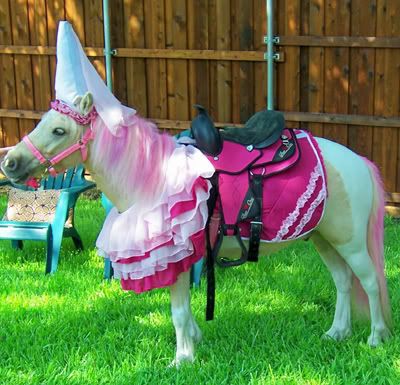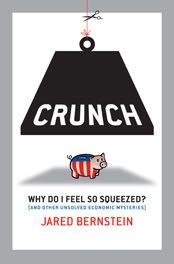 click to enlarge In 1654, John Casor, a black man, become the first legally-recognized slave in the area to become the United States. A court in Northampton County ruled against Casor, declaring him property for life, "owned" by the black colonist mentioned before: Anthony Johnson. Since persons with African origins were not English citizens by birth, they were not necessarily covered by English Common Law. The Virginia Slave codes of 1705 made clear the status of slaves. During the British colonial period, every colony had slavery. Those in the north were primarily house servants. Early on, slaves in the South worked on farms and plantations growing indigo, rice, and tobacco; cotton became a major crop after the 1790s. In South Carolina in 1720 about 65% of the population consisted of slaves. Slaves were used by rich farmers and plantation owners with commercial export operations. Backwoods subsistence farmers seldom owned slaves. Some of the British colonies attempted to abolish the international slave trade, fearing that the importation of new Africans would be disruptive. Virginia bills to that effect were vetoed by the British Privy Council; Rhode Island forbade the import of slaves in 1774. All of the states except Georgia had banned or limited the African slave trade by 1786; Georgia did so in 1798 - although some of these laws were later repealed. The West Africa Squadron was assisted by forces from the United States Navy, starting in 1820 with the USS Cyane. Initially this consisted of a few ships, but was eventually formalized by the Webster-Ashburton Treaty of 1842 into the Africa Squadron. A TCD reader suggested this documentary on Black History titled A Great and Mighty Walk. View Documentary Here Disclaimer:
BIRTH OF A NOTION WALLPAPER is now available for your computer. Click here. |
Thursday, April 10, 2008
Black History: Transition from Servitude
Posted by
Storm Bear
at
7:04 AM
0
comments
![]()
Labels: cartoons, comics, indentured servitude, slavery, webcomics
Wednesday, April 9, 2008
If wishes were ponies...
Originally posted at Howard-Empowered People With 14 days to go until the people of Pennsylvania vote, the Obama campaign has decided to go all-out. They're trying to end the race for the White House with an unyielding media blitz. Right now, we're being outspent 4-1 on Pennsylvania television.Maybe I'm misremembering this, but isn't that how Hillary was planning to win the nomination? By crushing any and all challengers under the weight of her mighty campaign war chest? But, I do understand. What it comes down to is that Hillary Clinton really really wants to be president. She wants it so much that she seems unable to even consider the possibility that it won't happen. I am reminded of a moms' group I attended when Son and Daughter in Ohio were much younger. One of the other mothers was asking how to respond to her little one's meltdown over being denied something s/he desperately wanted. Like maybe the child wanted a pony, but couldn't have one. The group leader suggested saying something like, "You wish you could have a pony." When I first heard that suggestion, I couldn't help laughing, because it sounded like sarcasm to me. "You wish!" But I learned to say it in a way that didn't feel that way to me. "You really wish you could have..." It was kind of Rogerian, actually. A way of acknowledging kids' feelings and making sure they know they've been heard...even if the answer is still "no". I'm glad I had some good role models to teach me the importance of showing empathy toward toddlers and preschoolers. The "you can't always get what you want" lesson is a tough one for little kids, and they deserve our compassion as they are learning it. But when we're talking about 60 year old senators, my patience and compassion wear a bit thin... Here's your pony, Hillary.  Now get out of the damn race! |
Posted by
Renee in Ohio
at
6:09 PM
0
comments
![]()
Labels: delegates, Democratic Primary, hillary clinton, pennsylvania, SuperDelegates
Great Television I Won't Be Watching
Appearing at The Jaundiced Eye, the Independent Bloggers' Alliance, and My Left Wing.  The Sundance Award winning documentary "The Greatest Silence: Rape in the Congo" debuted on HBO last night. I did not watch it, nor will I when it re-airs. It would only make me go all fetal. The documentary is described in chilling detail in the Washington Post. Six rapists in the lush forest of the Democratic Republic of Congo: One in a green hood, another in a red baseball cap, another in military fatigues and a camouflage hat, another in black sunglasses. Their guns are pointed down. Smoking cigarettes, they swagger. They hold up their fingers, counting the number of women they have raped, violated, damned. Sexual terror as a weapon of war, perpetrated sometimes with sticks, knives, tree limbs. What follows are selected quotes from the surivors, their rapists, the filmmaker, and others. "He who rapes a woman rapes an entire nation." "This type of sexual terrorism is done in a methodical manner by armed groups." "We were raped by 20 men at the same time. Our bodies are suffering. They have taken their guns and put them inside us. They kill our children and then they tell us to eat those children. If a woman is pregnant, they make your children stand on your belly so that you will abort. Then they take the blood from your womb and put it in a bowl and tell you to drink it." "If she says no, I must take her by force. If she is strong, I'll call some of my friends to help me. All this is happening because of the war. We would live a normal life and treat women naturally if there was no war." "After we've been raped, our men don't want us anymore. We are considered half-human beings." "Women are suffering. We have forgotten what happiness is." "Well, those women were not taken by force. The thing is they were in a combat zone where most of the fighters relied on magic power. This magic potion worked in such a way that you've got to rape women in order to overcome the enemies who've invaded our country, the Congo. That is why all those things have happened." "They are forgotten women in a forgotten war." |
Black History: Birth of Colonial Slavery
 click to enlarge The first record of African slavery in Colonial America occurred in 1619. A Dutch ship, the White Lion, had captured 20 enslaved Africans in a battle with a Spanish ship bound for Mexico. The Dutch ship had been damaged first by the battle and then more severely in a great storm during the late summer when it came ashore at Jamestown. Though the colony was in the middle of a period later known as "The Great Migration" (1618-1623), during which its population grew from 450 to 4,000 residents, extremely high mortality rates from disease, malnutrition, and war with Indians kept the population of able-bodied laborers low. With the Dutch ship being in severe need of repairs and supplies and the colonists being in need of able-bodied workers, the human cargo was traded for food and services. In addition to African slaves, Europeans, mostly Irish, Scottish, English, and Germans, were brought over in substantial numbers as indentured servants, particularly in the British Thirteen Colonies. Over half of all white immigrants to the English colonies of North America during the 17th and 18th centuries consisted of indentured servants. The white citizens of Jamestown, who had themselves arrived from Britain, decided to treat the first Africans in Virginia as indentured servants. As with European indentured servants, the Africans were freed after a stated period and given the use of land and supplies by their former owners, and at least one African American, Anthony Johnson, eventually became a landowner on the Eastern Shore and a slave-owner himself. The major problem with indentured servants was that in time they would be freed, but were unlikely to become prosperous. The best lands in the tidewater regions were already in the hands of wealthy plantation families by 1650, and the former servants became an underclass. Bacon's Rebellion showed that the poor laborers and farmers could prove a dangerous element to the wealthy landowners. By switching to pure chattel slavery, new white laborers and small farmers were mostly limited to those who could afford to immigrate and support themselves. Disclaimer:
|
Monday, April 7, 2008
Black History: Slave Names
 click to enlarge After emancipation, many freedmen and -women took the surnames of their former owners as their own. Some blacks in the U.S. took on the surname Freeman, while others adopted the names of popular historical or contemporary figures of social importance, such as former presidents Washington, Jefferson, and Jackson. A number of African-Americans and Jamaican Americans have changed their names out of the belief that the names they were given at birth were "slave names." An individual's name change often coincides with a religious conversion (Muhammad Ali and Louis Farrakhan, for example) or involvement with the black nationalist movement (e.g., Amiri Baraka and Assata Shakur). Some organizations encourage African-Americans to abandon their "slave names." The Nation of Islam is perhaps the best-known of them. In his book, Message to the Blackman in America, Nation of Islam leader Elijah Muhammad writes often of "slave names." Some of his comments include: "You must remember that slave-names will keep you a slave in the eyes of the civilized world today. You have seen, and recently, that Africa and Asia will not honor you or give you any respect as long as you are called by the white man’s name." "You are still called by your slave-masters' names. By rights, by international rights, you belong to the white man of America. He knows that. You have never gotten out of the shackles of slavery. You are still in them." Other organizations, such as the Black nationalist US Organization also advocate for African-Americans to change their "slave names." Nevertheless, the overwhelming majority of African-Americans bear "slave names." Disclaimer:
|
Posted by
Storm Bear
at
6:46 AM
0
comments
![]()
Labels: Africa, cartoons, comics, north america, slave name, slavery, webcomics
Crunch Time In America: An Interview With Economist Jared Bernstein
“I’m tired of being stuck in the studio engaging in rants with Darth Vaders with PhDs. Wouldn’t it be more useful to have an open-ended, rant-free dialogue with real, everyday people about their economic questions.”With Crunch, Bernstein effectively validates the daily experience of working people struggling to keep up in a treadmill economy. He also adroitly writes with accessible prose and powerful anecdotes to both educate readers about economic nuances and empower them to influence politics in a more populist direction. Bernstein contends that the rich and powerful have as much influence on who benefits from the economy as the will of the market. He therefore hopes to inspire readers not to cede any more ground to the practitioners of hyper individualism at the expense of the American community. One of the most memorable anecdotes in Bernstein’s book describes how Circuit City announced it planned to lay off 3,400 sales associates in the spring of 2007 in order to appease their shareholders. Bernstein utilized this anecdote to illustrate how corporate greed is both heartless and self-defeating: “Talk about in-your face management. I can absolutely see why a firm whose stock was down by a third over the past year would decide to make some big changes. But unless your workforce is truly overpaid, replacing a big chunk of it with lower-paid workers is a recipe for lousier service, fewer sales, and lower profits. At the time, many predicted that after the initial jump, stock prices would sink further. We were wrong, though. They never got that initial bump, and the stock just kept sliding, down 15 percent a few months later (while the overall stock market was up strong).”It’s that kind of prose that led former North Carolina Senator and populist presidential candidate John Edwards to issue the following praise: “Jared Bernstein’s new book is a must read for everyone who cares about restoring economic fairness in an America with the greatest income inequality since the Great Depression. Drawing on everyday examples, Crunch is an accessible explanation of economic principles presented with equal parts of insight, humor, and stimulation. In the process, Bernstein explains how we got to where we are, what to do to fix it, and why fighting for a fair society is so important.”An expert on issues of labor and income inequality, he frequently testifies on Capitol Hill. Bernstein is also the co-author of eight editions of The State of Working America and he posts frequently on Josh Marshall’s blog, TPM Café. Longtime readers/listeners of the Intrepid Liberal Journal may recall an interview he did for this blog after his book, All Together Now: Common Sense For A Fair Economy was published in 2006. Bernstein agreed to a podcast interview over the telephone about his current book and the current challenges confronting the American economy. Our conversation was approximately forty-eight minutes and among the issues covered includes the housing and credit crisis, needed regulatory reform, healthcare, globalization, Social Security, America’s investment deficit and free trade. Please refer to the Pickle media player below. This interview can also be accessed for free by searching for “Intrepid Liberal Journal” on Itunes. |
Posted by
Robert Ellman
at
4:32 AM
0
comments
![]()
Labels: All Together Now, Crunch, Economic Policy Institute, Jared Bernstein, The State of Working America















